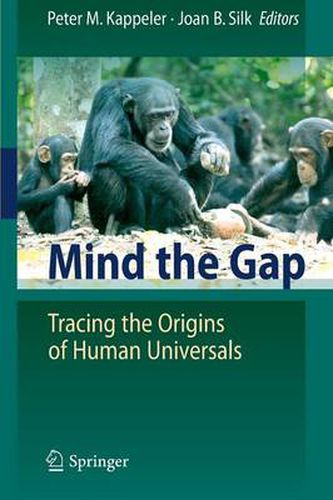Readings Newsletter
Become a Readings Member to make your shopping experience even easier.
Sign in or sign up for free!
You’re not far away from qualifying for FREE standard shipping within Australia
You’ve qualified for FREE standard shipping within Australia
The cart is loading…






This title is printed to order. This book may have been self-published. If so, we cannot guarantee the quality of the content. In the main most books will have gone through the editing process however some may not. We therefore suggest that you be aware of this before ordering this book. If in doubt check either the author or publisher’s details as we are unable to accept any returns unless they are faulty. Please contact us if you have any questions.
This volume features a collection of essays by primatologists, anthropologists, biologists, and psychologists who offer some answers to the question of what makes us human, i. e. , what is the nature and width of the gap that separates us from other primates? The chapters of this volume summarize the latest research on core aspects of behavioral and cognitive traits that make humans such unusual animals. All contributors adopt an explicitly comparative approach, which is based on the premise that comparative studies of our closest biological relatives, the nonhuman primates, provide the logical foundation for identifying human univ- sals as well as evidence for evolutionary continuity in our social behavior. Each of the chapters in this volume provides comparative analyses of relevant data from primates and humans, or pairs of chapters examine the same topic from a human or primatological perspective, respectively. Together, they cover six broad topics that are relevant to identifying potential human behavioral universals. Family and social organization. Predation pressure is thought to be the main force favoring group-living in primates, but there is great diversity in the size and structure of social groups across the primate order. Research on the behavioral ecology of primates and other animals has revealed that the distribution of males and females in space and time can be explained by sex-speci?c adaptations that are sensitive to factors that limit their ?tness: access to resources for females and access to potential mates for males.
$9.00 standard shipping within Australia
FREE standard shipping within Australia for orders over $100.00
Express & International shipping calculated at checkout
This title is printed to order. This book may have been self-published. If so, we cannot guarantee the quality of the content. In the main most books will have gone through the editing process however some may not. We therefore suggest that you be aware of this before ordering this book. If in doubt check either the author or publisher’s details as we are unable to accept any returns unless they are faulty. Please contact us if you have any questions.
This volume features a collection of essays by primatologists, anthropologists, biologists, and psychologists who offer some answers to the question of what makes us human, i. e. , what is the nature and width of the gap that separates us from other primates? The chapters of this volume summarize the latest research on core aspects of behavioral and cognitive traits that make humans such unusual animals. All contributors adopt an explicitly comparative approach, which is based on the premise that comparative studies of our closest biological relatives, the nonhuman primates, provide the logical foundation for identifying human univ- sals as well as evidence for evolutionary continuity in our social behavior. Each of the chapters in this volume provides comparative analyses of relevant data from primates and humans, or pairs of chapters examine the same topic from a human or primatological perspective, respectively. Together, they cover six broad topics that are relevant to identifying potential human behavioral universals. Family and social organization. Predation pressure is thought to be the main force favoring group-living in primates, but there is great diversity in the size and structure of social groups across the primate order. Research on the behavioral ecology of primates and other animals has revealed that the distribution of males and females in space and time can be explained by sex-speci?c adaptations that are sensitive to factors that limit their ?tness: access to resources for females and access to potential mates for males.